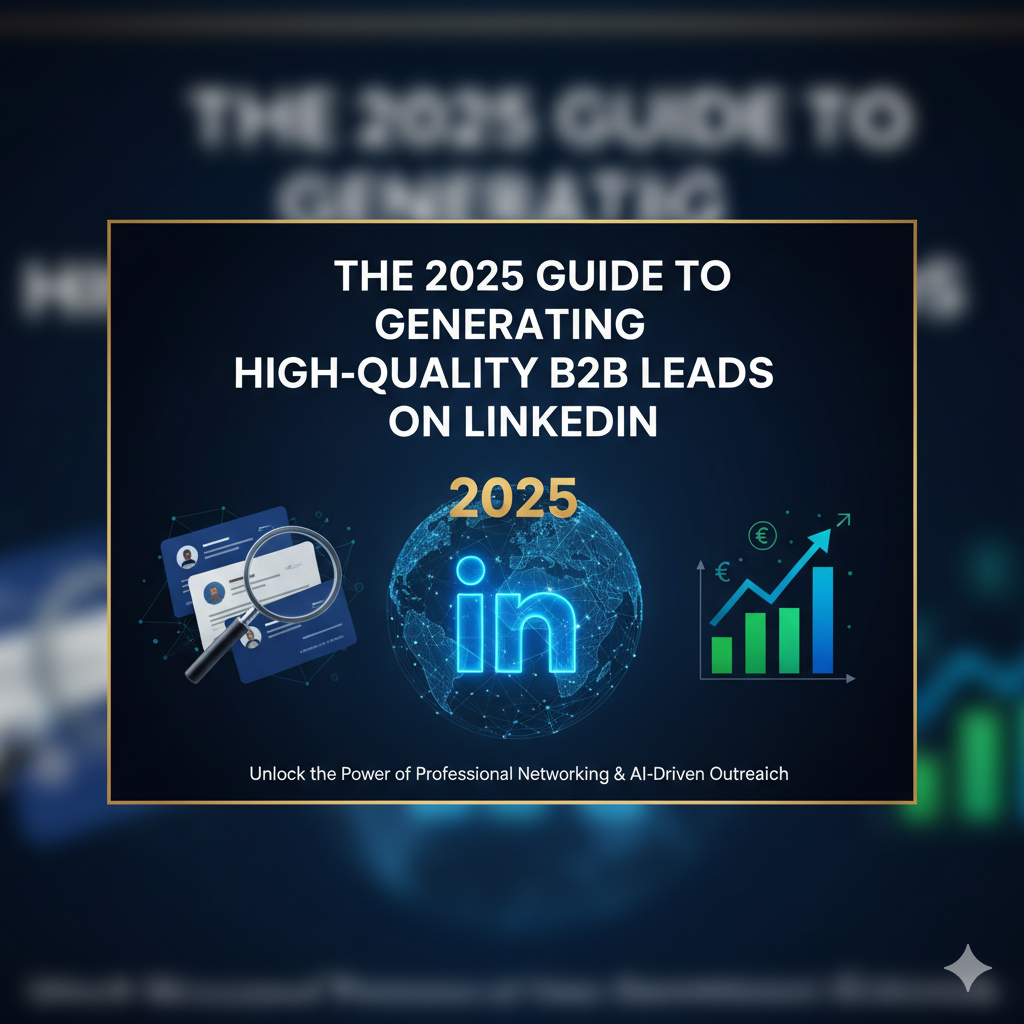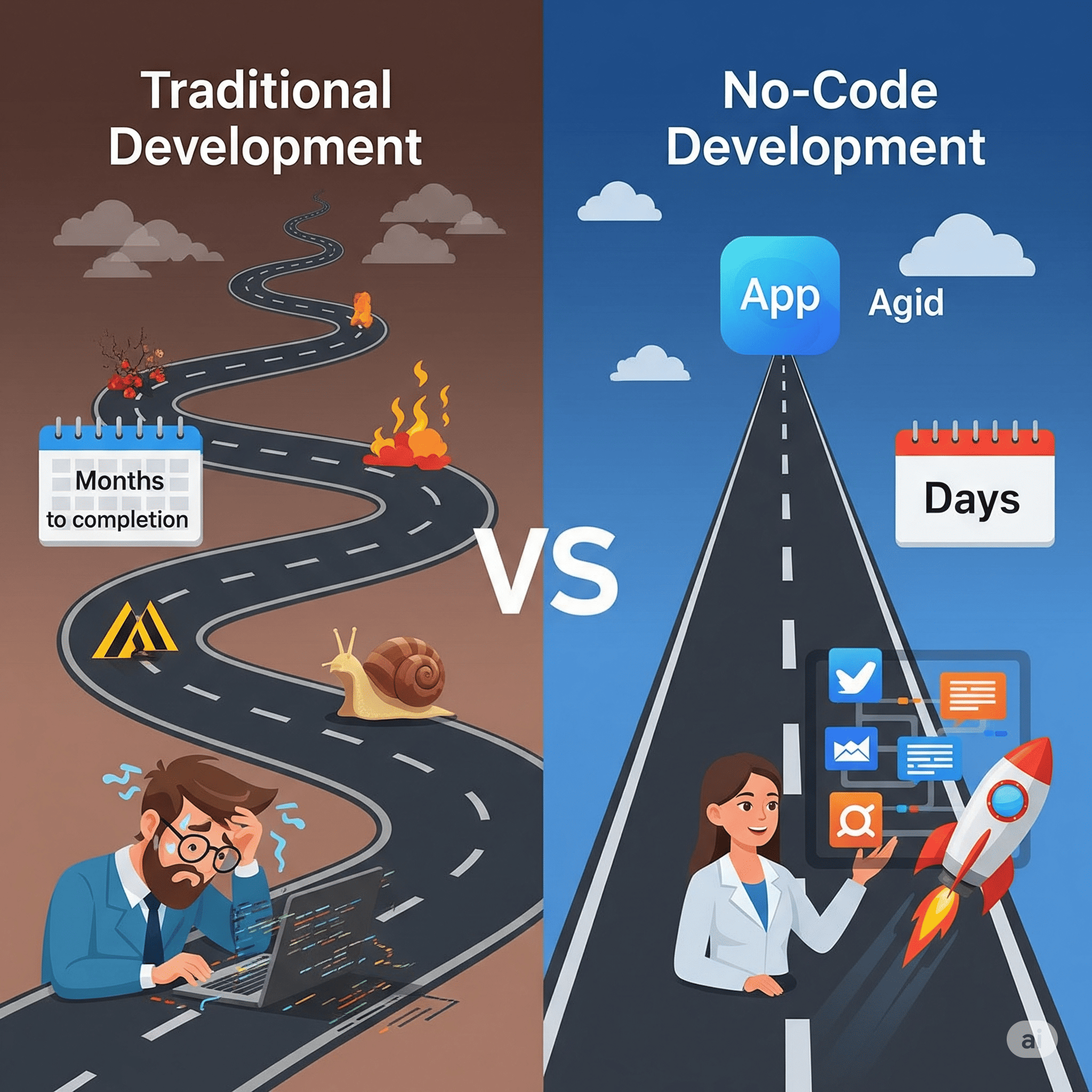How to Choose the Right B2B Marketing Agency for Your Business

Let's be real. Finding the right B2B marketing agency can feel like navigating a crowded marketplace. There are tons of options, each promising the moon. It's like walking into a custom motorcycle shop and being bombarded with flashy bikes, each claiming to be the best. How do you choose the right one for your needs?
The truth is, partnering with the wrong agency can be a costly mistake. You could end up wasting time, money, and resources without seeing any real results. It’s like buying a high-performance engine that doesn't fit your frame—it's useless.
But partnering with the right agency? That’s a game-changer. It’s like finding a skilled mechanic who understands your vision and builds you the perfect machine to conquer any road. They become an extension of your team, helping you achieve your marketing goals and drive explosive growth.
This guide isn’t about hype or empty promises. It’s about giving you a practical, step-by-step framework to choose a B2B marketing agency that truly delivers. We’ll cover everything from defining your needs and evaluating agencies to navigating contracts and managing the ongoing relationship.
Ready to find the perfect marketing partner and accelerate your B2B growth? Let's dive in.
Understanding B2B Marketing Agencies and Their Services

Before you start vetting agencies, it’s crucial to understand what they actually do. It’s like knowing the different parts of a motorcycle before you start customizing it.
A B2B marketing agency is a specialized firm that helps business-to-business companies market their products or services to other businesses. They offer a range of services designed to generate leads, build brand awareness, and drive revenue growth.
Here are some key B2B marketing services offered by agencies:
- Lead Generation: This is often the primary goal. Agencies use various tactics, such as content marketing, SEO, paid advertising, and social media marketing, to generate qualified leads for your sales team.
- Content Marketing: Creating valuable and engaging content (blog posts, white papers, ebooks, case studies) to attract and engage your target audience.
- Search Engine Optimization (SEO): Optimizing your website and content for search engines to improve organic visibility and drive traffic.
- Social Media Marketing: Managing your social media presence, creating engaging content, and running social media advertising campaigns.
- Marketing Automation: Implementing and managing marketing automation tools to streamline marketing processes and nurture leads.
- Account-Based Marketing (ABM): A highly targeted approach that focuses on building relationships with key accounts.
- Website Development: Designing and developing websites that are optimized for conversions and user experience.
- Growth Marketing: A data-driven approach to marketing that focuses on rapid experimentation and growth hacking.
- AI Enablement: Leveraging AI tools for marketing automation, content personalization, and data analysis.
Pro Tip: Don’t just assume all agencies are the same. Some specialize in specific industries or marketing disciplines. Look for an agency with expertise in your specific area.
Identifying Your Ideal B2B Marketing Agency Partner

Choosing a B2B marketing agency isn't a one-size-fits-all situation. What works for a small startup might not work for a large enterprise. It’s like choosing a motorcycle – a lightweight dirt bike is perfect for off-roading, but not ideal for long highway trips. You need to find the right “bike” for your specific journey.
Here are some key factors to consider when identifying your ideal agency partner:
- Define Your Target Audience and Industry Considerations: Who are you trying to reach? What industry are you in? Some agencies specialize in specific industries, like SaaS, manufacturing, or healthcare. Choosing an agency with relevant industry experience can be a huge advantage. For example, if you are a B2B SaaS company, choosing a B2B SaaS marketing agency will be more beneficial than choosing a general agency.
- Budgetary Constraints and Agency Pricing Models: How much are you willing to invest in marketing? Agencies typically use different pricing models, including hourly rates, monthly retainers, and project-based fees. Determine your budget upfront and find an agency that offers a pricing model that aligns with your financial resources.
- Internal Marketing Team Capabilities: Do you have an in-house marketing team? If so, what are their strengths and weaknesses? You might need an agency to fill specific skill gaps or provide strategic guidance. If you have a small team, you may need an agency to handle a wide range of marketing activities. If you don't have any team, you probably need a full-service B2B Marketing agency. This will help you to decide what type of agency you need.
- Level of Support Needed from the Agency: Do you need an agency to handle all of your marketing efforts, or just specific aspects? Some agencies offer full-service marketing solutions, while others specialize in specific areas like SEO or content marketing.
Pro Tip: Don’t just focus on the size of the agency. A smaller, specialized agency might be a better fit than a large, generalist agency if you have specific needs.
The B2B Marketing Agency Selection Process: A Step-by-Step Guide

Now that you know what you’re looking for, it’s time to start the selection process. This is where you put on your detective hat and start investigating potential agencies. It’s like researching different motorcycle mechanics before entrusting them with your prized possession.
Here’s a step-by-step guide to help you find the right agency:
- Research and Identify Potential B2B Marketing Agencies: Start by researching agencies online. Use search engines, online directories, and industry publications to identify potential partners. Look for agencies that have experience working with businesses in your industry and target audience.
- Develop a Shortlist of Agencies: Once you’ve identified a few potential agencies, create a shortlist based on their expertise, experience, and online reputation. Look for agencies that have a strong track record of success and positive client testimonials.
- Craft a Clear Request for Proposal (RFP): An RFP is a document that outlines your project requirements, budget, and timeline. It helps you gather consistent information from different agencies and compare their proposals side-by-side.
Crafting an RFP that Gets Results (RFP Checklist):
- Clearly define your project goals and objectives.
- Outline your target audience and key demographics.
- Specify the services you require from the agency.
- Provide a detailed budget and timeline.
- Ask specific questions about the agency’s experience, expertise, and approach.
Pro Tip: Don’t just rely on online information. Talk to other businesses in your industry and ask for recommendations. Word-of-mouth referrals can be a valuable source of information.
Evaluating B2B Marketing Agencies: Key Questions to Ask

You’ve got your shortlist of potential B2B marketing agencies and have sent out your RFPs. Now comes the critical stage: evaluation. This is where you dig deep to determine if an agency is truly the right fit for your business. It’s like inspecting a motorcycle before you buy it – you need to check under the hood to make sure everything is in order.
Here are some key questions to ask when evaluating B2B marketing agencies:
- Experience and Expertise in Your Specific B2B Industry and Target Audience: Have they worked with businesses like yours before? Do they understand your industry's unique challenges and opportunities? Do they have a proven track record of success in your specific niche?
- Proven Track Record of Success with Measurable Results: Don’t just take their word for it. Ask for case studies, client testimonials, and data that demonstrate their ability to deliver results. Look for specific metrics like lead generation, conversion rates, website traffic growth, and ROI.
- Agency Culture, Team Structure, and Communication Style: Do they have a culture that aligns with your company’s values? Do they have a dedicated team that will be working on your account? Are they responsive and communicative? A strong working relationship is crucial for long-term success.
- Transparency in Pricing and Reporting Processes: Are their pricing structures clear and transparent? Do they provide regular reports on their progress and performance? You need to know where your money is going and what you’re getting in return.
- Use of AI-Powered Marketing Tools and Technologies: In today’s data-driven world, AI is becoming increasingly important in marketing. Does the agency leverage AI tools for tasks like marketing automation, content personalization, and data analysis? This can give you a significant competitive edge.
Pro Tip: Don’t be afraid to ask tough questions. You’re investing in a partnership, so you need to be confident that the agency can deliver on its promises.
Beyond the Proposal: Assessing Agency Capabilities

The RFP and initial conversations are just the beginning. To truly assess an agency’s capabilities, you need to go beyond the proposal and dig a little deeper. It’s like taking a motorcycle for a test ride – you need to see how it performs in real-world conditions.
Here are some ways to assess an agency’s capabilities beyond the proposal:
- Client References and Testimonials: Talk to the agency’s current and past clients. Ask about their experience working with the agency, the results they achieved, and any challenges they faced.
- Portfolio Review of Past Work and Creative Quality: Review the agency’s portfolio to see examples of their past work. Look for projects that are similar to yours in terms of industry, target audience, and marketing goals.
- Chemistry and Fit: Ultimately, a successful agency partnership is built on trust and mutual understanding. Schedule meetings with the agency team to assess their communication style, personality, and overall fit with your company culture.
Pro Tip: Trust your gut. If something feels off during the evaluation process, it’s probably worth investigating further.
Navigating B2B Marketing Agency Contracts

So, you’ve found the perfect B2B marketing agency. Congratulations! But before you pop the champagne, there’s one crucial step: the contract. This document is the foundation of your partnership, so it’s important to review it carefully. It's like the title deed to your motorcycle – you need to understand the fine print.
Here are some key contract terms to pay close attention to:
- Scope of Work: Clearly define the services the agency will provide. This should include specific deliverables, timelines, and responsibilities.
- Deliverables: Specify exactly what the agency will deliver, whether it’s a certain number of blog posts per month, a specific number of leads generated, or a certain level of website traffic growth.
- Timelines: Establish clear timelines for each deliverable and for the overall project.
- Payment Terms: Outline the payment schedule, including payment methods, due dates, and any late payment penalties.
- Intellectual Property: Clarify who owns the intellectual property for the work created by the agency.
- Termination Clauses: Understand the conditions under which either party can terminate the contract.
Pro Tip: Don’t hesitate to negotiate contract terms. If you’re not comfortable with something, talk to the agency and see if you can reach an agreement. It’s always best to address any concerns upfront.
The Onboarding Process: Setting the Stage for Success

The contract is signed, the partnership is official. Now, it’s time for onboarding. This is where you set the stage for a successful working relationship. It’s like breaking in a new motorcycle – you need to get familiar with its controls and handling.
Here are some key steps in the onboarding process:
- Establishing Clear Communication Channels and Reporting Structures: Determine how you’ll communicate with the agency (e.g., regular meetings, email updates, project management software). Establish clear reporting structures to ensure you’re kept informed of progress and performance.
- Sharing Relevant Business Information and Marketing Assets with the Agency: Provide the agency with all the necessary information about your business, including your target audience, marketing goals, brand guidelines, and existing marketing materials.
- Setting Up Regular Meetings and Progress Updates: Schedule regular meetings to discuss progress, address any challenges, and ensure everyone is on the same page.
Pro Tip: A smooth onboarding process is crucial for building a strong working relationship. Invest the time and effort to get it right.
Ongoing Management and Performance Evaluation

The partnership is up and running. But your work isn't done yet. Ongoing management and performance evaluation are essential for ensuring you’re getting the most out of your agency relationship. It's like regular maintenance on your motorcycle – it keeps it running smoothly and prevents costly breakdowns.
Here are some key aspects of ongoing management:
- Key Performance Indicators (KPIs) and Reporting Frequency: Establish clear KPIs and agree on a reporting frequency. This will allow you to track the agency’s performance and measure the ROI of your marketing investment.
- Regular Communication and Feedback Loops: Maintain open communication with the agency and provide regular feedback on their work. This will help them understand your expectations and make any necessary adjustments to their strategy.
- Adapting the Strategy Based on Performance Data and Market Changes: The marketing landscape is constantly changing. Be prepared to adapt your strategy based on performance data and market trends.
Pro Tip: Don’t just set it and forget it. Regularly review the agency’s performance and make adjustments as needed.
Conclusion
Choosing the right B2B marketing agency is a critical decision that can significantly impact your business growth. By following the steps outlined in this guide, you can find a partner that aligns with your goals, understands your needs, and delivers measurable results.
Remember, it’s not just about finding an agency; it’s about finding the right agency – one that will become a valuable extension of your team and help you achieve your business objectives.
Get Started with Growthmak Today!
Unlock your marketing potential with our expert team.





.svg)

